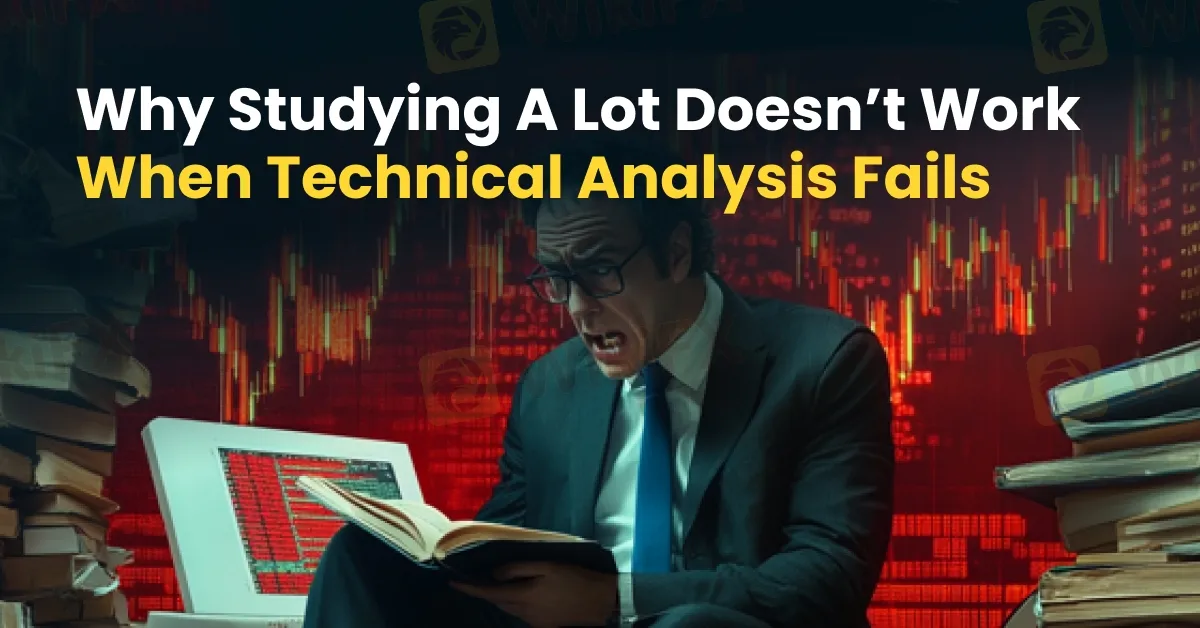Abstract:Technical analysis is the go-to toolkit for countless investors. Candlestick patterns, moving averages, MACD signals, Elliott Waves—you name it, there’s a chart or model for it. Many spend years perfecting their craft, poring over price patterns and back testing strategies. Yet, despite all this effort, a large number still lose money. The reason? It’s not the tools as they’re merely instruments. It’s the human behind them that falters. In particular, wishful thinking and emotional bias often sabotage disciplined execution.

Technical analysis is the go-to toolkit for countless investors. Candlestick patterns, moving averages, MACD signals, Elliott Waves—you name it, there‘s a chart or model for it. Many spend years perfecting their craft, poring over price patterns and back testing strategies. Yet, despite all this effort, a large number still lose money. The reason? It’s not the tools as they‘re merely instruments. It’s the human behind them that falters. In particular, wishful thinking and emotional bias often sabotage disciplined execution.

1. Its a Game of Probabilities, Not Certainties
At its core, technical analysis is probabilistic. Indicators like support and resistance levels or moving average crossovers rely on historical patterns, not guaranteed outcomes. But markets are driven by human behaviour, which is always irrational. Greed, fear, and hope can disrupt even the most well-defined technical setup.
Take a textbook breakout, for instance. A stock breaks through a neckline, indicating bullish momentum. But just as traders pile in, major players might deliberately reverse course, triggering a sharp decline. In such moments, textbook theory collides with market reality.
2. The Perils of Overfitting
Many traders fall into the trap of over-optimising their indicators, tweaking variables in search of the elusive ‘perfect’ signal. But markets evolve. A strategy that performed well in a past bull run might be obsolete in a downturn. The 2015 Chinese stock market crash was a harsh reminder: countless traders believed in the mantra “a bull market never tops” until they were blindsided by a brutal collapse.
3. Black Swan Events Ignore Your Charts
Technical analysis falters in the face of unpredictability. Policy shifts, corporate fraud, geopolitical conflicts will not be priced into your moving averages. When U.S. crude oil futures turned negative in 2020, no chart could have seen it coming. In such moments, statistical patterns become irrelevant.

While technical indicators provide signals, the real battleground is psychological. Traders often know what to do, but fail to act.
1. Ignoring Stop-Loss Signals
The discipline to cut losses is foundational. Yet many traders, driven by the hope of a rebound, delay action. “Just wait, itll bounce back,” they say. A minor dip deepens into a painful loss. Studies show that over 90% of retail investor losses stem from an inability to exit losing positions in time.
2. Greed Overrides Exit Strategies
On the flip side, profitable trades are held too long. Technical signals advise caution with divergences, fading volume, but greed whispers, “It can go higher.”
3. Averaging Down into the Abyss
Technical discipline advises trading with the trend. But the urge to lower ones average cost leads traders to buy more as prices fall. The result? Compounding losses.
4. The Allure of Frequent Trades
Technical analysis should enhance precision, not encourage impulsivity. Yet overconfidence often leads to hyperactive trading. Ironically, higher trade frequency correlates with greater losses.
In summary, technical analysis is a sharp blade as it can be capable, precise, and powerful. But in the hands of a trembling trader ruled by hope, it becomes dangerous. Ultimately, the most successful market participants are not the most technically proficient, but the most disciplined.
Markets reward those who master their emotions, not those who master their charts.












